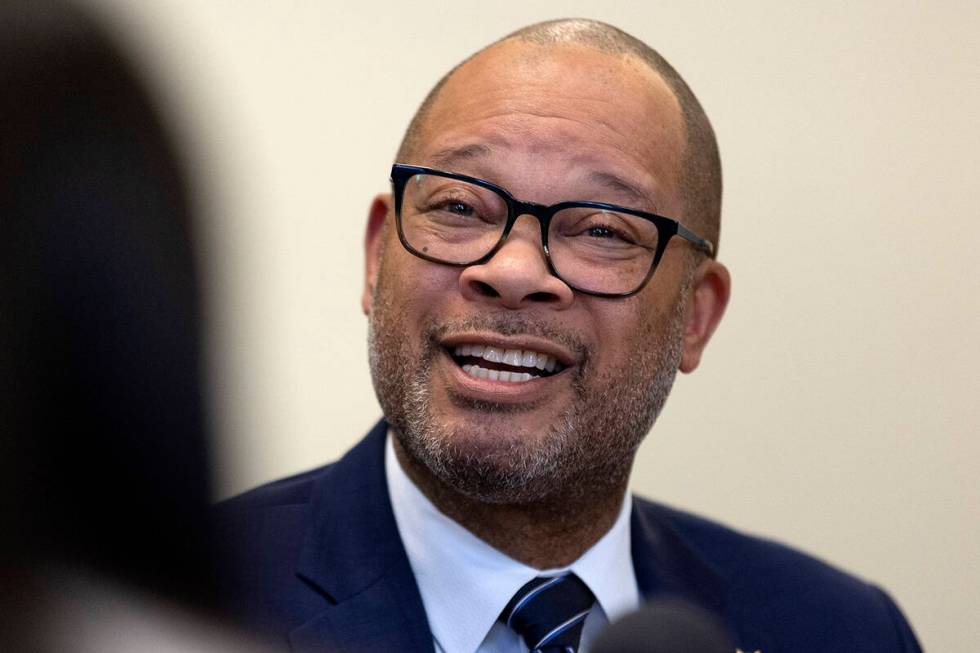What are they hiding? AG’s office delays response to records requests

The Nevada attorney general’s office took months to produce public records that the state’s other constitutional offices promptly released, raising questions about why the state’s top law enforcement office continues to delay the release of important documents that help taxpayers understand its function.
In May, the Las Vegas Review-Journal requested five months of calendars from the governor, secretary of state, attorney general, treasurer and controller. Attorney General Aaron Ford’s staff repeatedly pushed back the release of records, while the other agencies released the calendars within a few weeks.
When the newspaper informed the attorney general’s staff on Monday that it planned to publish a column about the delays, the office released the records the following day. The request also included visitor logs, but the attorney general was the only office that maintained the logs, which were released with the calendars.
Stephen Bates, a professor of journalism and media studies at UNLV, said state law requires public records to be released promptly.
“When it takes months and months, then it’s not that useful to journalists especially,” he said. “Journalists are telling you about problems that exist right now, not problems that existed six months ago.”
The records allow the public to understand what the elected officials are prioritizing, who they are meeting with and what issues they are considering. For instance, the governor’s records led to a May 30 story about Gov. Joe Lombardo’s first few months in office.
The Nevada Public Records Act requires agencies to produce records without unreasonable delays. It makes clear that delays in providing access to public records violate the law as much as denying a request.
To put teeth in that requirement, the law was changed in 2019 to require agencies to provide detailed explanations of delays and to allow for lawsuits based on a delay in providing public records.
John Sadler, the communications director for the attorney general’s office, emailed a statement that said the office tries to answer all public records requests as quickly as possible.
The requests are fulfilled in the order the office receives them, he wrote, and different factors influence the estimated response date.
“We receive hundreds of requests each year, requiring a small team of deputy attorneys general to review many thousands of pages of documents,” Sadler wrote.
Repeated AG delays
This is not the first time Ford’s office has delayed the production of documents requested by the Review-Journal.
In 2019, the Review-Journal filed requests asking about an investigation into the UNLV dental school, a probe of corruption allegations over the DMV computer system revamp, and the search for a law firm to handle the opiate litigation. The agency repeatedly pushed back the release date of those records for months.
In August 2022, a Review-Journal reporter requested all emails referencing Never Give Up Youth Healing Center, a youth psychiatric treatment center that was the subject of a Review-Journal investigation, between 2018 and 2022. Eight months later, the reporter received copies of 10 emails.
Another reporter sent a request in September about the office’s investigation into a complaint by a local official and did not receive the requested documents — which were one page long — until February.
Regarding the May request for calendars and visitor logs, the attorney general staff initially said they would release the records on June 23, but then on June 22 delayed it to Aug. 4. In August, the attorney general’s public records coordinator told the Review-Journal that the request had been pushed back again to Sept. 8, only to release the records when told about this column.
As all of the other offices were able to promptly turn over the records, which were “pretty straightforward,” it would be odd if the attorney general’s office operated in a different way, Bates said.
There’s also no “ignorance defense” for the attorney general’s office because knowing the law is his job, he said.
It’s “hard to say the attorney general’s office is unaware of what the legal requirements are,” Bates said.
Contact Jessica Hill at jehill@reviewjournal.com. Follow @jess_hillyeah on X.
The “What Are They Hiding?” column was created to educate Nevadans about transparency laws, inform readers about Review-Journal coverage being stymied by bureaucracies, and shame public officials into being open with the hardworking people who pay all of government’s bills. Were you wrongly denied access to public records? Share your story with us at whataretheyhiding@reviewjournal.com.